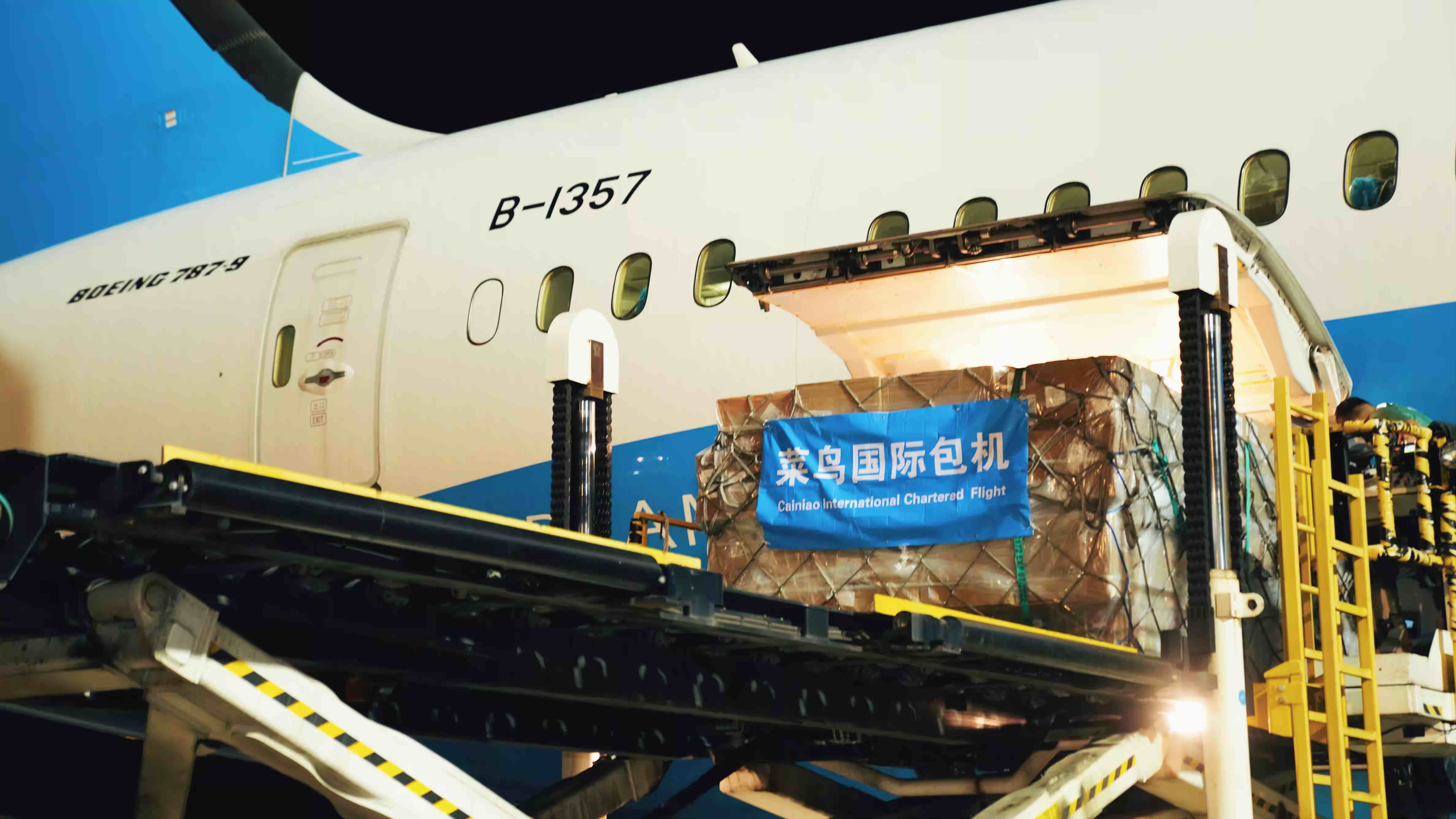
Photo credit: Shutterstock
This week, Alibaba Group’s Alibaba Talent Program launched applications for higher education students in Singapore to gain hands-on research and development experience at its research facilities.
In other news, Alibaba partnered with a leading employment service in China to connect small businesses with people looking for work.
And shoppers can get ready for speedy order fulfillment as Cainiao launches a cargo route from China’s east coast to sunny California.
Alibaba Talent Program Arms Singaporean Students with R&D Skills
Alibaba announced this week that its Alibaba Talent Program would continue for a fourth year to provide computer science students with R&D skills gleaned from solving real-life problems.
The program, launched in 2018, is open to Singapore citizens and permanent residents who graduated from local or top-ranking universities globally. Students in the program will have their full tuition covered and receive a monthly stipend of S$5,000 ($3,563).
It also gives postgraduate students in computer science in Singapore the chance to work at Alibaba’s research facilities under the mentorship of at least one supervisor from Nanyang Technological University and one co-supervisor from Alibaba.
Students in the program have helped address critical real-life challenges, such as using medical imaging analysis and machine learning to predict the likelihood of dementia and Parkinson’s disease in seniors and advanced autonomous driving-related projects.
New applicants can join the program in its Semester 1 intake next month or Semester 2 intake in January 2023, according to a release.
Alibaba.com Steps in to Make Hiring Easier for SMEs
Job seekers can say goodbye to circling classifieds as Alibaba’s B2B platform Alibaba.com teamed up with employment service Zhaopin to livestream work opportunities at businesses.
Between February and June, Zhaopin shared more than 1,350 job listings from 694 small and medium-sized enterprises (SMEs) with job seekers via livestreams.
The virtual events brought in roughly 44,000 applications for the jobs advertised, a 270% growth in volume compared to traditional listing practices, according to the employment agency.
“As a cost-effective approach, livestream becomes a major channel for merchants to use for talent acquisition,” said Yao Yuan, project lead of the Talent Program at Alibaba.com.
Talent acquisition has become a pain point for SMEs, particularly retailers involved in cross-border trade, as their global expansion outpaces hiring. Alibaba.com rolled out a targeted “Talent Program” to cater to such needs.

Cainiao Adds New Cargo Route between Xiamen and Los Angeles
Smart logistics network Cainiao rolled out a new shipping route to ramp up the cross-border deliveries from China to the U.S. as part of its latest efforts to facilitate cross-border logistics.
The twice-weekly flight takes off from southeast China’s Xiamen to land in Los Angeles on the same day, adding to the two cargo flight routes Cainiao operates between the countries.
Cainiao operates a warehouse in Los Angeles that can process 5 million cross-border parcels daily. Apart from the time saved in the air, the new freight route will also cut cargo loading and transferring fees for e-commerce merchants.
Botanical Beauty Company Boscia Enters China Market Through Tmall Global
Vegan skincare and beauty brand Boscia has partnered with Alibaba Group’s B2C cross-border platform Tmall Global to ride an upswell in interest in sustainable consumer goods.
“Global reach is a priority, and the volume that we can drive on Tmall Global is enormous,” says Sarah Inomata, Head of International Sales for Boscia.
While the global beauty and personal care sector grew 2% last year, according to market analyst Neilson, sales in its NeilsonIQ Clean index – products free from 600 artificial ingredients – grew 8.1%.
Directly managing its own Tmall store enables Boscia to learn about Chinese consumption trends like this, and the brand is optimistic about future growth in the market.
Watch the video here
Cainiao Brings Duty-Free Korean Goods to Chinese Consumers
Alibaba Group’s logistics network Cainiao is helping two South Korean duty-free companies reach Chinese consumers via cross-border e-commerce as the pandemic continues to weigh heavily on the travel retail industry.
Shinsegae Duty Free, one of the country’s largest travel retailers, launched an online shopping platform this week, enabling overseas purchases of Korean duty-free goods fulfilled by Cainiao.
“With the fast development of China-Korea cross-border trade, Chinese consumers are demanding more timely delivery and better services, on top of diverse product offerings,” said Shin Jang Hwan, South Korea Team leader at Cainiao.
Cainiao is ready to deliver, with more than 15,000 square meters of warehouse space under its belt in Korea and six cargo ships and cargo planes making weekly crossings between Korea and China.
Read more here
Digital-Savvy Shoppers, Investment Buying: What Do New Luxury Shopping Trends Mean for Brands?
As luxury shopping becomes accessible to younger generations and residents of China’s lower-tier cities, new lifestyle and consumption preferences are emerging among domestic consumers, according to Alibaba Group’s high-end retail platform Tmall Luxury Pavilion.
The recently published Tmall Luxury Strategic Consumer Profiles White Paper points to growing digital awareness among Chinese luxury shoppers as well as a move towards investment buying.
“Chinese consumers are diverse, with very different lifestyles, values, different understanding of luxury products,” George Ren, a senior partner at consultancy Roland Berger, said in a statement.
Tmall Luxury Pavilion is going high-tech to meet these different demands.
VR and AI-powered digital tools allow consumers to virtually try on clothing, view 3D jewelry renderings, and receive one-on-one consultations from their living rooms.
Read all about it here




